Six Things A Real Damp Survey Checks In Your Home
Evidence first, then the right fix for Bournemouth homes and flats. See how we perform a real damp survey on this 1920s flat in Bournemouth, finding the cause, not just the symptom.
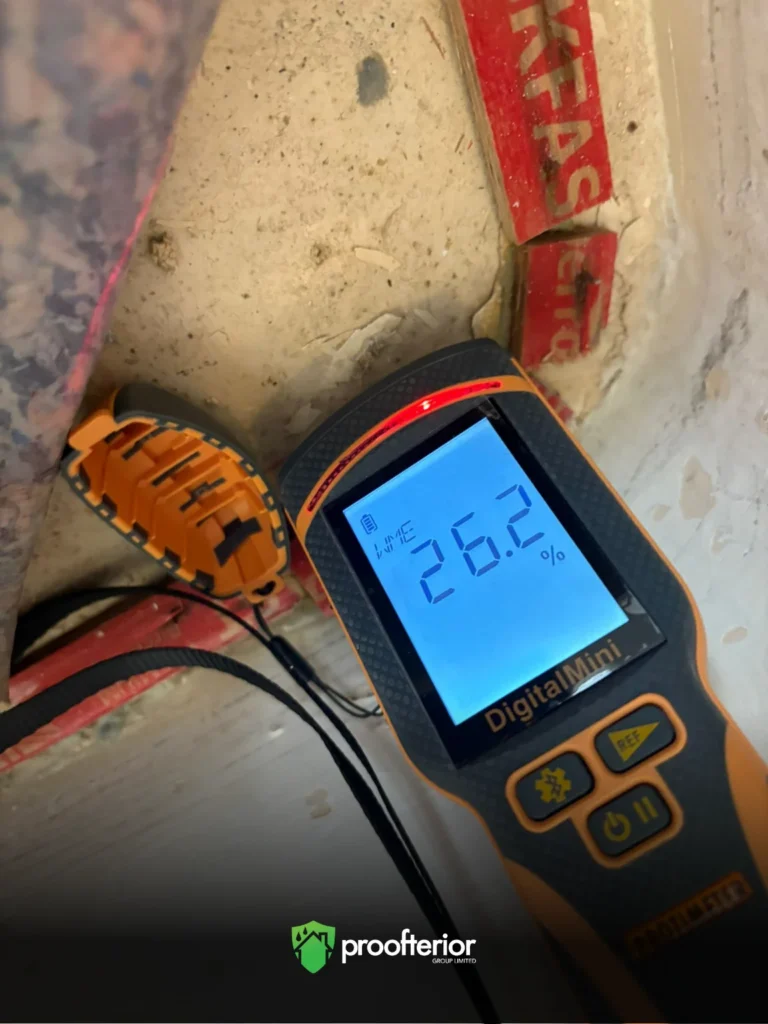
1. Moisture readings that map the problem
We begin with calibrated surface readings to spot elevated moisture, even before stains appear. The data tells us where to focus and helps separate a local splash from a wider moisture pathway. We record heights and locations so we can compare readings after works, which proves the fix has taken. This is the baseline for every damp survey Bournemouth visit, and it keeps decisions objective rather than guesswork.
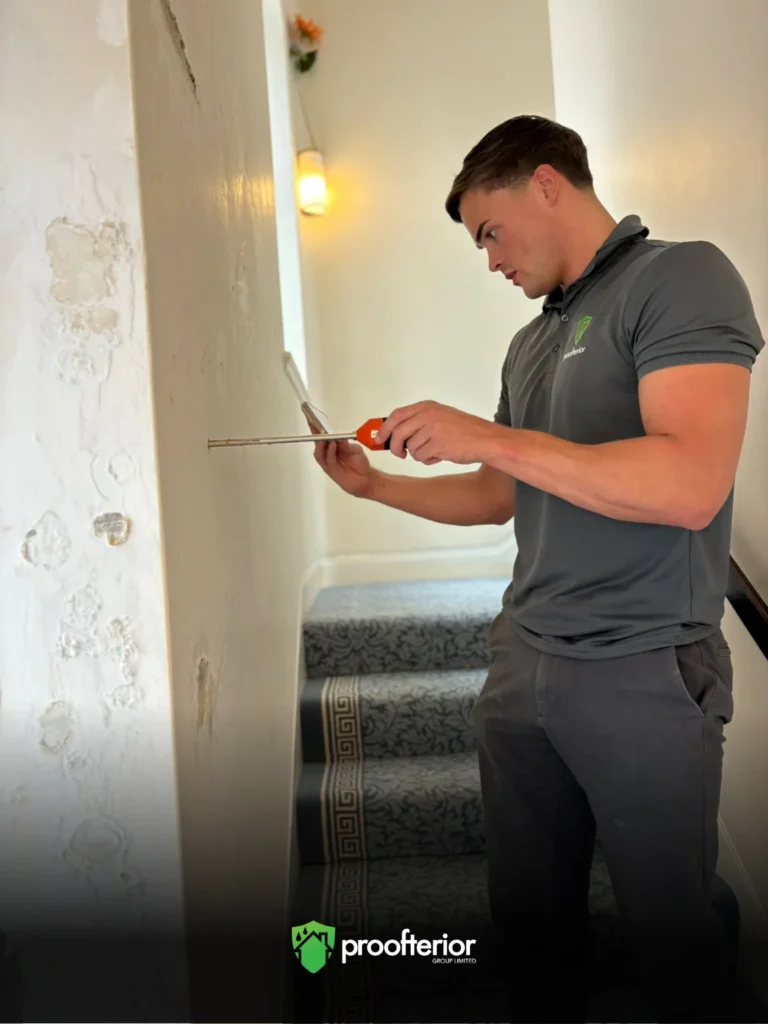
2. Confirming The Wall Build
Older Bournemouth flats often have cavities or mixed construction that behave differently when wet. We verify the wall build so we understand how moisture can move through it and where it might be trapped. Knowing whether you have a solid wall, a partial cavity or added insulation changes the remedy and the finish we recommend. This step prevents wasted spend on treatments that do not suit the structure.
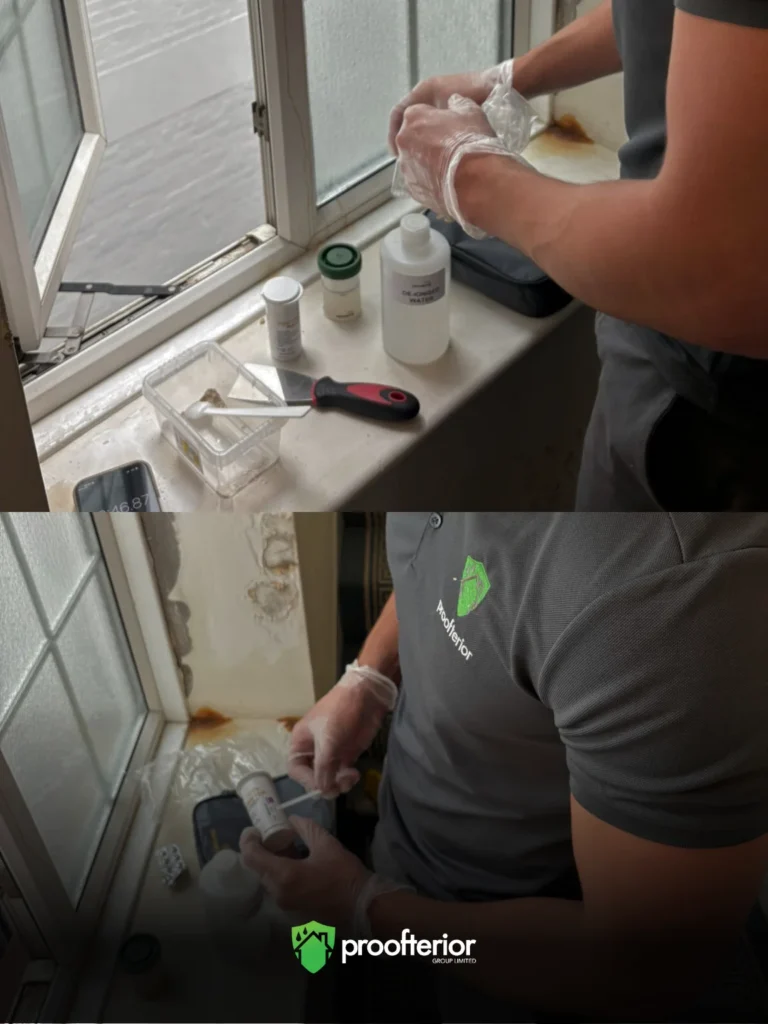
3. Salt Testing For The Right Diagnosis
We test wall samples for salts that act like fingerprints. Chloride can point to coastal influence from sea spray, while nitrate is more typical of rising groundwater. In our 1920s Bournemouth flat the chloride result changed the treatment path, because it proved what the wall had been exposed to. Salt results also guide which primers and finishes will remain clean, which means a longer-lasting result after the repair.
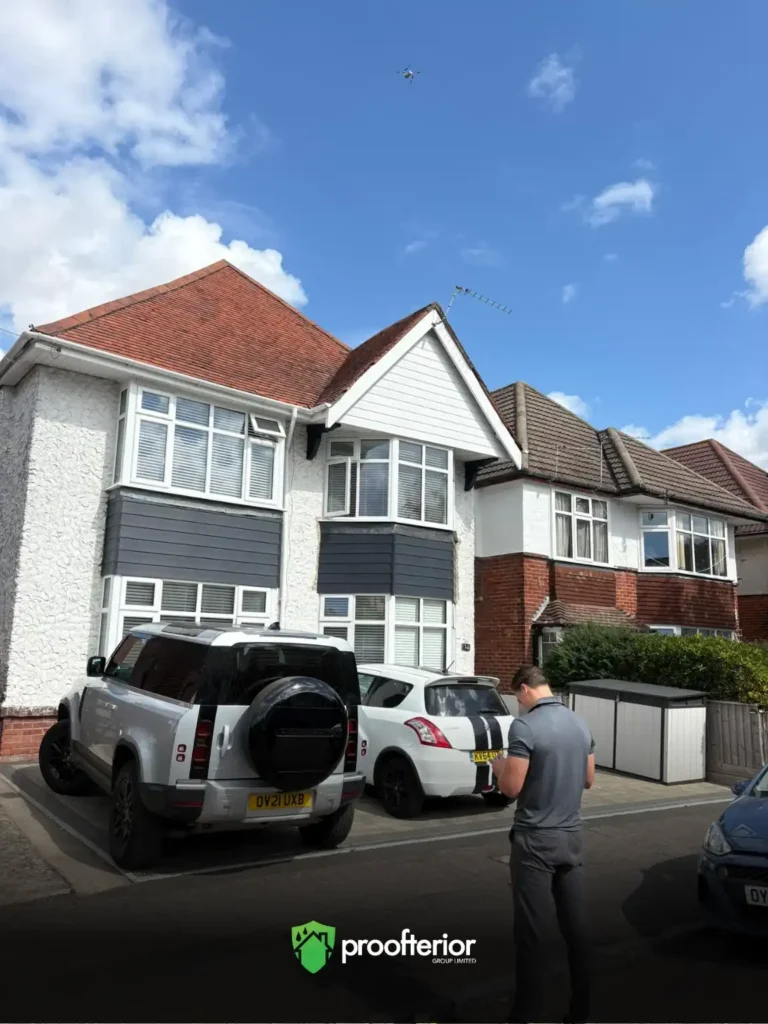
4. Roof And Gutter Checks From The Air
We fly a drone to inspect ridge lines, flashings and gutters safely. High-resolution images reveal slipped tiles, fatigued flashings and blocked outlets that ladders cannot reach. On the coast, wind and salt make these checks essential after storms, and the photos explain indoor marks in a way that everyone can see. If a simple repair will stop water tracking, we show it clearly in the report.
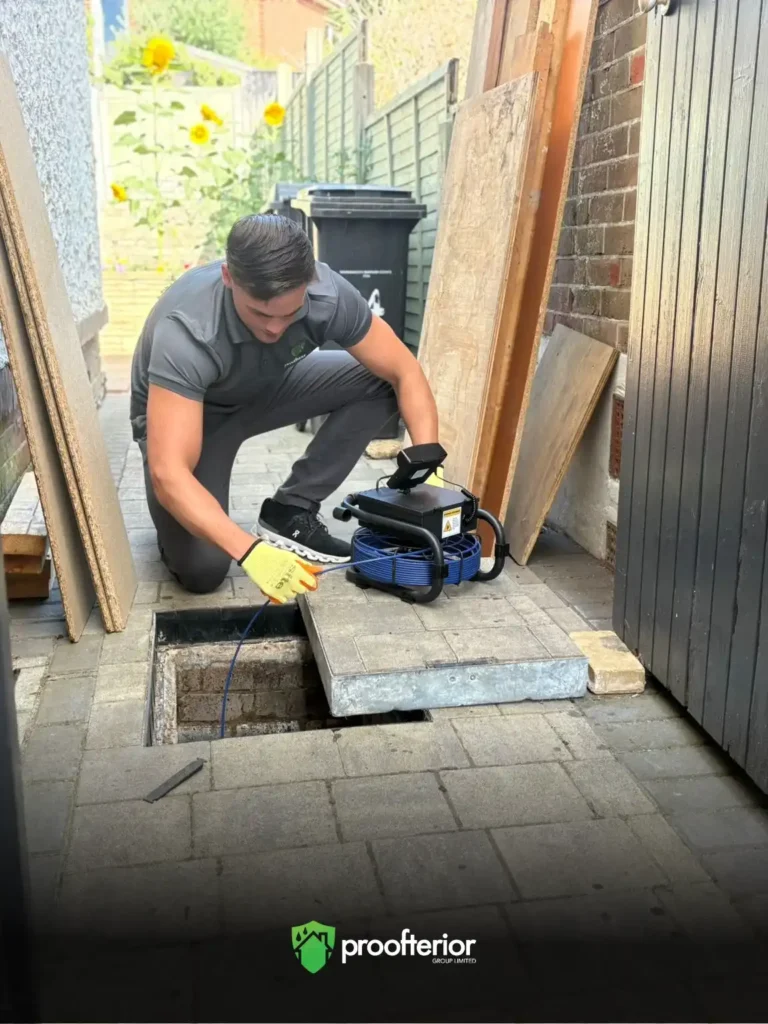
5. CCTV Drain Survey Below Ground
Moisture can start underground, so we look beneath your feet when symptoms suggest it. A camera survey traces cracked joints, root ingress and poor falls that keep foundations wet. If the footage shows a defect beside your wall, we specify a targeted repair or re-line so water leaves the building, not enters it. Pairing this with modest level changes outside often delivers a quick, visible improvement in Bournemouth plots.
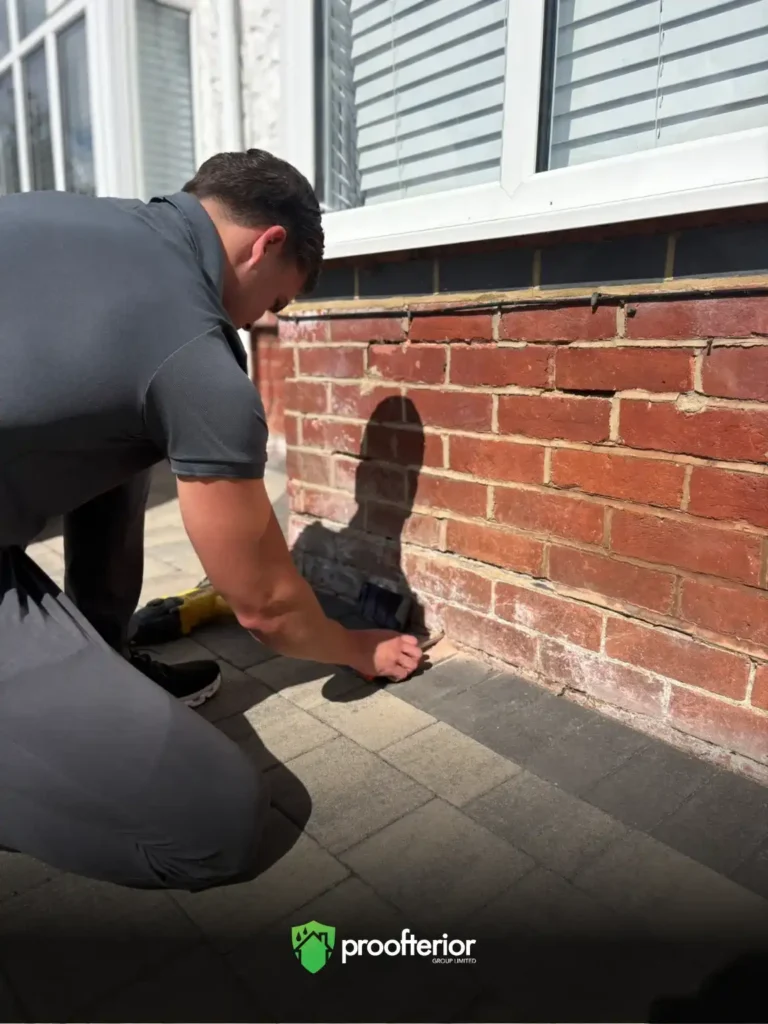
6. Cavity Condition And Cold Bridges
We check whether cavities are clear or bridged by debris or old insulation. Bridging is a common reason damp keeps returning in pre-war Bournemouth blocks, and it can move rain to the inner leaf. Where cold corners or bay returns are the issue, we map surface temperatures and design improvements that lift wall warmth. In tight spaces we often specify thin internal wall insulation such as ISO-THERM, which reduces condensation risk without stealing floor space.
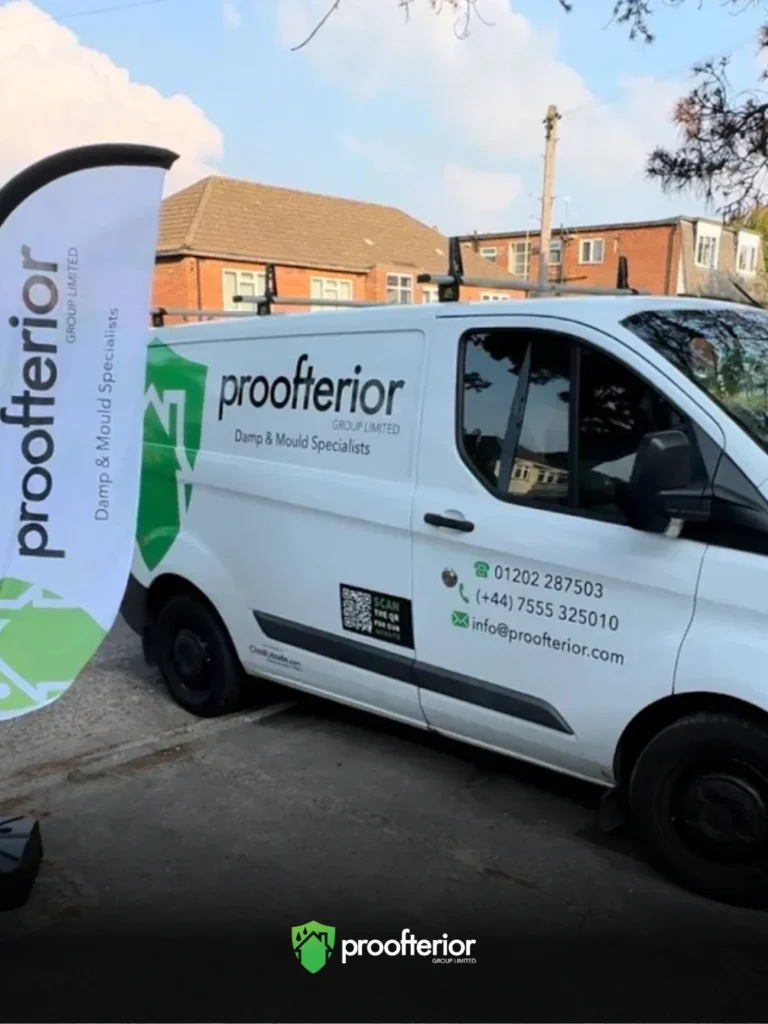
What You Receive After The Survey
You get clear photos, mapped readings, salt results and a plain-English diagnosis, followed by a fixed written plan. The plan lists priority repairs, likely timelines and simple aftercare so you know what happens next. Every pound is spent on real answers, not box-ticking, and we return to re-check readings where needed to confirm success.
Areas we cover
Bournemouth, Boscombe, Westbourne, Southbourne, Winton, Charminster, Moordown, Kinson, Ensbury Park, Pokesdown, Queens Park, Littledown, Talbot Woods, Throop, Muscliff, Iford, Redhill, Northbourne, East Cliff, West Cliff. We also serve Poole and Christchurch.
FREQUENTLY ASKED QUESTIONS
What happens during a Proofterior damp survey in Bournemouth?
We follow a six-step process that includes calibrated moisture readings, salt testing, drone roof inspection, CCTV drain survey where symptoms suggest it, cavity wall checks and indoor climate profiling. Each step links evidence to a practical fix so you get a clear plan, not guesswork.
How do you tell damp from condensation or a small leak?
We map moisture at different heights, look for salts that act like fingerprints and compare readings with weather and use of rooms. Condensation leaves a different pattern to rising or penetrating damp, and leaks usually track to a single source.
Will you drill holes or cause mess during the survey?
If a cavity wall inspection is needed we make a small, discreet access point and restore it after. Floors and furniture are protected, and any disturbance is kept to a minimum.
What does salt testing tell you?
Chloride in plaster suggests coastal influence such as sea spray, while nitrate is more typical of rising groundwater. That result guides treatment and helps us choose primers and finishes that will stay clean.
Do you cover my neighbourhood in Bournemouth?
Yes. We work across Bournemouth, Boscombe, Westbourne, Southbourne, Winton, Charminster, Moordown and nearby Poole and Christchurch. Tell us your postcode and we will schedule the earliest survey slot.
Ready for clarity?
Book your damp survey Bournemouth today. We will find the cause, fix it neatly and keep your home dry.
